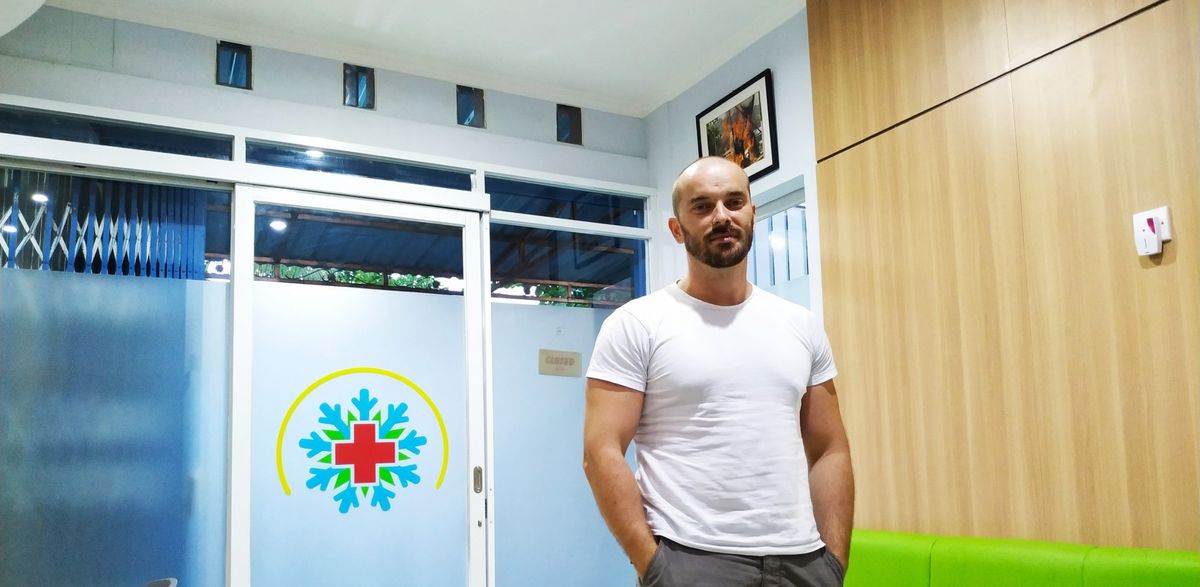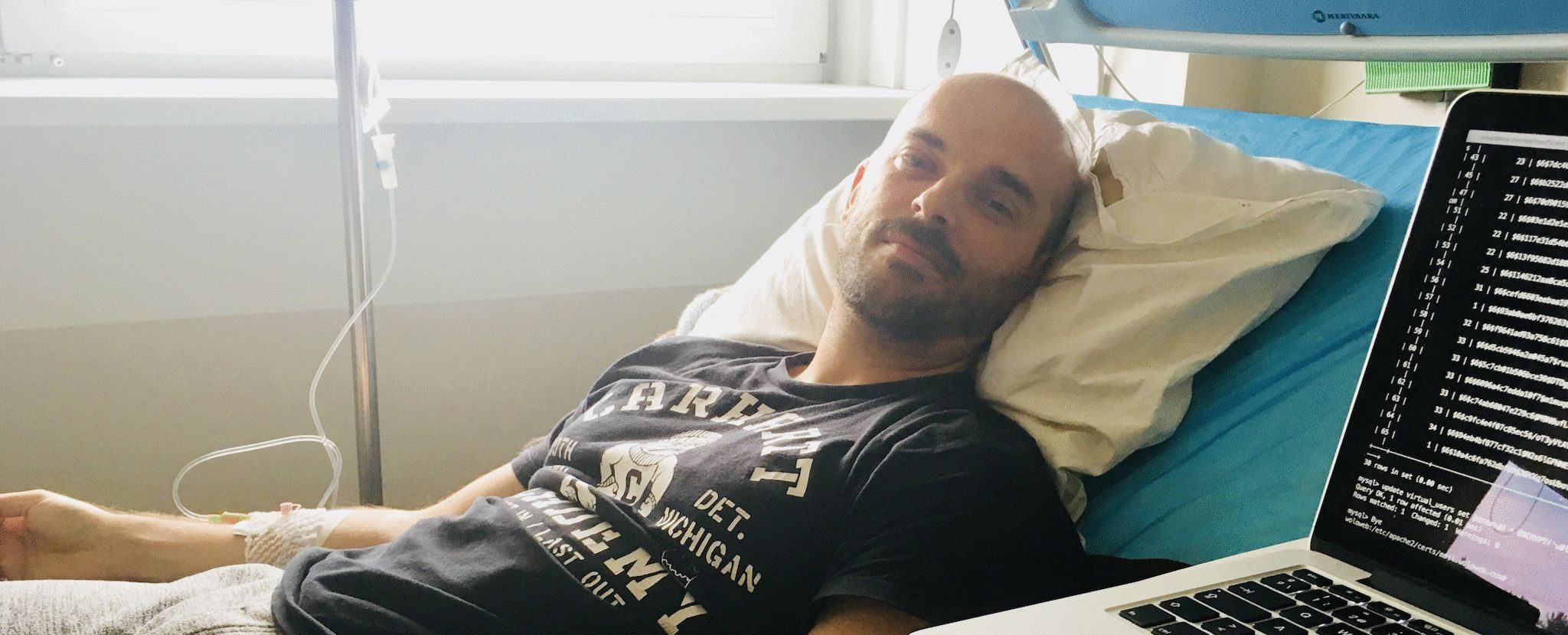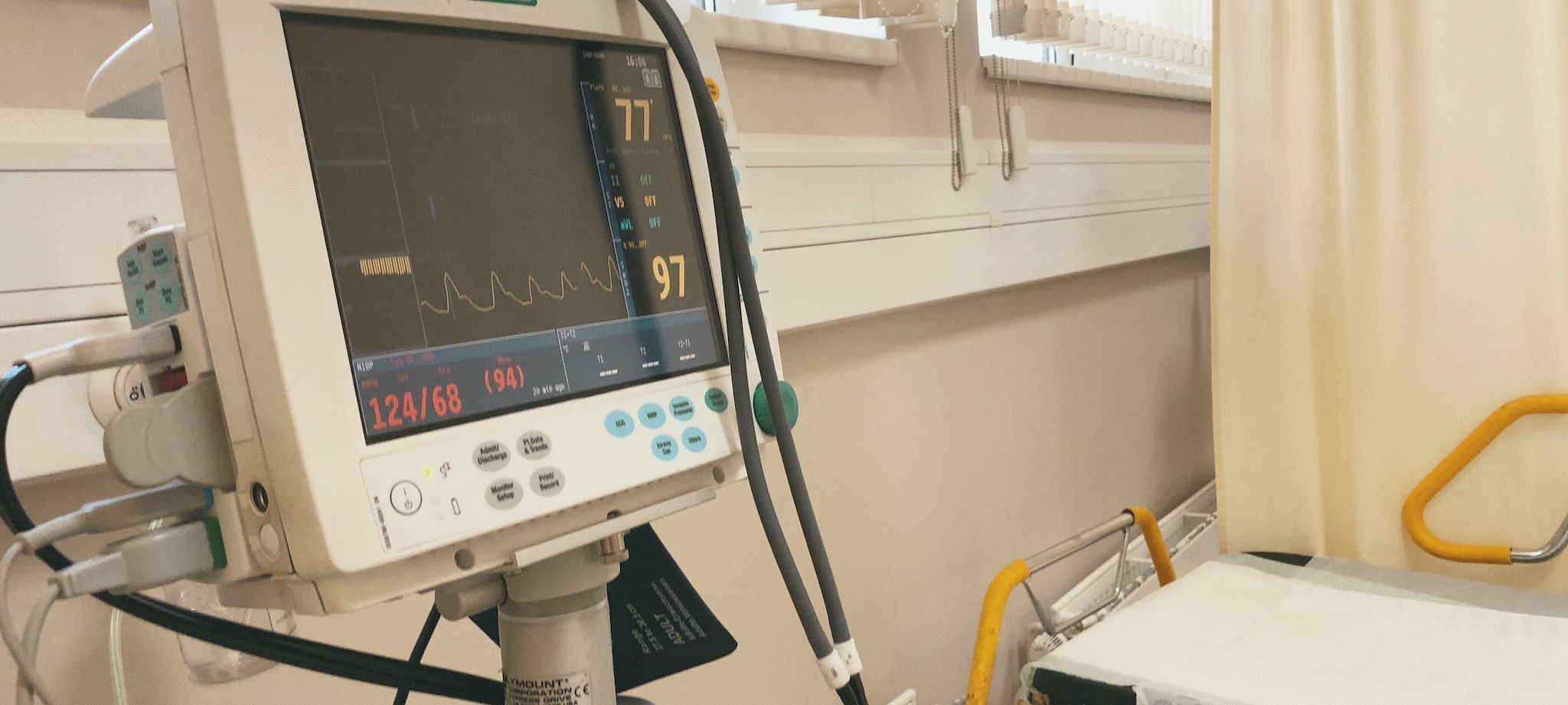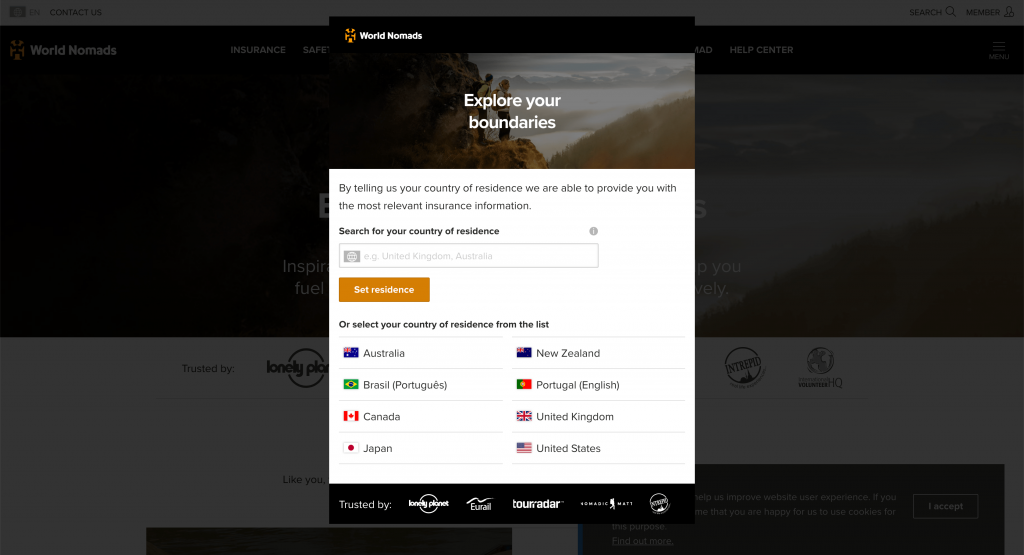Health Insurance For Digital Nomads

Not receiving proper medical assistance when you need it is one of the most distressful situations anyone can experience. If traveling the world is your lifestyle, you need to make sure you are covered wherever you go. In this article, I discuss available options for health insurance for digital nomads.
Don’t Take Your Chances
Some time ago, I described how I found myself in a creepy, Soviet-style hospital in Riga, waiting to be seen by a doctor with a painful ear infection.
Even though not a pretty experience, luckily for me I had planned everything in advance before traveling to Riga. Apart from my insurance, I had my European Sanitary Card in place, so I could get medical attention and went back home with the right treatment.
However, recently the sanitary card and the health insurance were about to expire, and I decided to explore some alternatives to get the best coverage with the best conditions. Due to a heavy workload, this exploration took me longer than I intended, and it got to the point where my current insurance had expired. As we were traveling to Spain in two weeks (where we are always covered as Spanish citizens), I decided to take my chances and look for alternatives there more thoughtfully.
What are the odds of falling seriously ill during these two weeks?
That Friday, after coming home late from the co-working center, I started shaking and realized I had a fever of over 39 ºC. That’s a lot. Long story short, I ended up in the emergencies room of another hospital, with a severe infection, and was hospitalized until Wednesday.
So adding to my fears and worries about my health, and the fact that I was in a hospital where 95% of the staff didn’t speak proper English, I was completely scared about the possible medical care charges. I had no insurance at all. I was screwed. Thanks, Murphy.
Digital Nomad Are Human Beings Too
Luckily for me, public healthcare in Latvia is really cheap, even if you are not insured. So I bore the cost as the price for learning a very valuable lesson: never take your chances with your health.
However, had I found myself in a different country, my mistake could have cost me a lot of money. Enough to ruin my life. Thus, I decided to re-write this post, to stress the importance of always being insured. I can hardly think of something more important where to invest your money.
When we are 20-something, we feel invincible. God-like creatures. We are going to live forever. Thus, spending money on something such as a health insurance policy or time to plan in advance where to go in case of emergency, or getting a family doctor, is probably at the bottom of our list when we get to a new place.
The image of the young, carefree digital nomad traveling through Asia with a backpack is completely misleading. The digital nomads of today are just like everybody else. They need to do the groceries, work and, of course, go to the doctor when you have the flu, or maybe just visit a physician for a regular check-up.
Especially if you travel outside of Europe, you also need to take into account things such as vaccines you need to get. Hopefully, you won’t need any sort of medical assistance. But still, that money and time are invested, not wasted.
Travel Insurance VS Health Insurance
There are basically two types of insurance. Travel insurance and Health insurance.
The former is aimed at people who travel outside of their countries for a limited amount of time and then go back. This insurance is been thought for emergencies or situations that may arise during your trip, like an accident or a sudden, serious illness.
The latter will give you full coverage, including routine check-ups, chronic diseases or conditions, and even cancer treatments. It has been thought for people who travel regularly and need to be covered everywhere as if they were in their home countries.
European Health Card For European Travelers
If you are European and are going to travel through Europe, you can ask for the European health card. It will cover you for some years in all EU countries (plus Iceland, Liechtenstein, Norway, and Switzerland). With it, you are supposed to receive the same medical assistance as you would in your home country.
Also, if you are a European citizen, and you travel for a longer period to some other European country, you may become a resident of that country and ask for the local sanitary card.
Nonetheless, this is just a temporary solution. Once you cut the ties with your home country, generally speaking, you won’t be able to renew your European health card, and registering as a resident of every country you visit is not also a good solution in the long-run.
It’s more like hacking the system. You can do it for some time, but it’s not the best way of leading your nomadic lifestyle.

Travel Insurance
Some digital nomads I know rely on regular traveling insurance to cover their medical needs. I would advise you NOT to do that for several reasons:
First, travel insurance will only cover you for a limited amount of time when you get to any given country. This type of insurance expects you to live in your home country most of the time and travel only occasionally, like on vacations.
I have travel insurance as part of my Revolut Premium subscription, but it only covers me 40 days after traveling to another country from “my home country”. So basically, it may be great if you reside in your home country and perhaps travel one month to other countries once or twice a year. Not really useful for digital nomads.
Last but not least, travel insurance is not supposed to be used as general health insurance. It only covers emergencies and situations such as accidents. If you need long-term treatments for a specific illness or need to visit a family doctor for a regular check-up, you are not covered.
The first limitation is essentially the main reason why regular travel insurance does not work for digital nomads. You may try it for some time but, eventually, you will want to be reassured that you are covered without needing to be bouncing back and forth your home country.
Nevertheless, One interesting thing about travel insurance is that it provides digital nomads with some very useful extras, like a flight delay or lost baggage insurance.
Private Healthcare?
If you travel frequently around countries with affordable private healthcare, and you are a young, healthy person, you may consider relying on private medical assistance or visiting private clinics.
As I mentioned before, in the Baltic countries, private healthcare is really cheap. We are talking around 34€ for visiting a specialist physician in Riga. Most Latvians I know actually pay that in order to avoid the long waiting times of their public healthcare system.
However, you should consider the worst-case scenario, and that is: what would happen if you get hit by a car or get a severe infection, or need to go through surgery and stay at the hospital for a very long time? That can happen to you. Not only it can end up costing you maybe some hundreds or even thousands, but it will add another concern to your life when you less need it. Trust me, when you are ill, all you should care about is getting better.
My advice would be: if you rely on private healthcare, make sure to buy at least some emergency insurance, covering things such as accidents, emergencies, and hospitalization. You’ll be grateful if something goes really wrong (hopefully not!).
Complete Health Insurance For Digital Nomads
Even when you no longer have the benefit of a “home country”, you may still want to get access to comprehensive health care. You want to rest assured that you can visit a family doctor to check a weird mole, be treated of chronic disease, or something really serious such as cancer
This obviously means buying global health insurance that will cover everything, no matter where you are. There are some health insurance companies that offer complete, worldwide medical health care, but they are quite expensive.
Well, at least, you will consider them expensive if you are a European citizen. Private insurance in Spain is about 35-50€ a month, with great coverage. However, if you are from the US, you may be used to paying hundreds of dollars for being covered.
And talking about the US, you need to be aware of the fact that, because health insurance is so crazily expensive there, if you apply for global health insurance, you will pay a lot more if you include the United States in your coverage area. Easily twice the amount. Not that the United States of America is a popular destination for digital nomads, but in my case at least, not a place I’m willing to travel to anytime soon.
There are few companies that offer truly global health insurance plans for digital nomads. Some of them are Integra Global and Cigna International.
Obviously, the main disadvantage of this insurance is the price. The costs of complete health insurance are a LOT higher than any travel insurance or local private insurance in Europe. That’s a price you may be willing to pay when choosing a digital nomad lifestyle.
However, there’s a compromise solution. Something not as expensive as complete health insurance but not tied to a home country like travel insurance.

Health Insurance for Digital Nomads?
Probably the nice spot for digital nomads is something in-between travel insurance and complete private insurance coverage. If there was something like travel insurance that will cover you also in not “life-or-death” situations, without the need of getting back to your home country regularly, that would be ideal, given that you don’t suffer a chronical disease or any other condition that needs periodic medication or treatment. A regular medical check-up is actually not that expensive after all.
Apart from that, it would be great if some of the nice coverages of travel insurance, like lost luggage or travel delay, where available too.
And in fact, there’s a company called SafetyWing (*) that offers precisely that. It’s insurance designed with digital nomads in mind, and the one that I have recently signed up with. Their insurance covers you in over 180 countries, and it’s quite affordable, starting at $37 (you pay an extra if you want to be covered in the United States). It covers not just emergency situations, but you can, for example, visit a doctor if you have the flu, and it also includes the prescribed drugs.
Thus, after serious thought, I decided to become a SafetyWing (*) customer, and quite happy with it. There are even clinics in most cities where you can go, show your member badge, and get assistance without needing to pay it in advance and wait for a return.
Essentially, however, the main advantage for us, digital nomads, is not needing to get back to a “home country”.
Are there any other providers? Yes, they are, but they are either these hideous “get a quote” services that look like they will try to cheat on you or negotiate… Or they are services like “World Nomads” who obviously don’t understand (in spite of their name) what a nomad is all about.
As an example, when you open the website of World Nomads, you are greeted with a non-dismissable pop up asking you for your country of residence. What an #epicfail, World Nomads! A digital nomad does not have a country of residence. We are not expats, and we are not on holiday.

Conclusion
Being ill in a foreign country is serious business. Talking about doctors, hospitals and health insurance is not funny. However, when you are a digital nomad, you need to be careful to make sure you receive proper medical assistance if the worst happens.
If traveling is a lifestyle for you, you can’t rely on travel insurance from your “home country”. You need to consider investing in insurance that will cover you wherever you go, no matter how much time you spend there or where you go next.
In this article, I discuss options for health insurance for digital nomads. In my mind, that’s one of the very few investments worth making in your life.
(*) Note: this post contains affiliate links to SafetyWing. That means that if you click on the link and buy their insurance, I may get some affiliate commission out of it. Thanks for your support! ❤️.




Comments ()